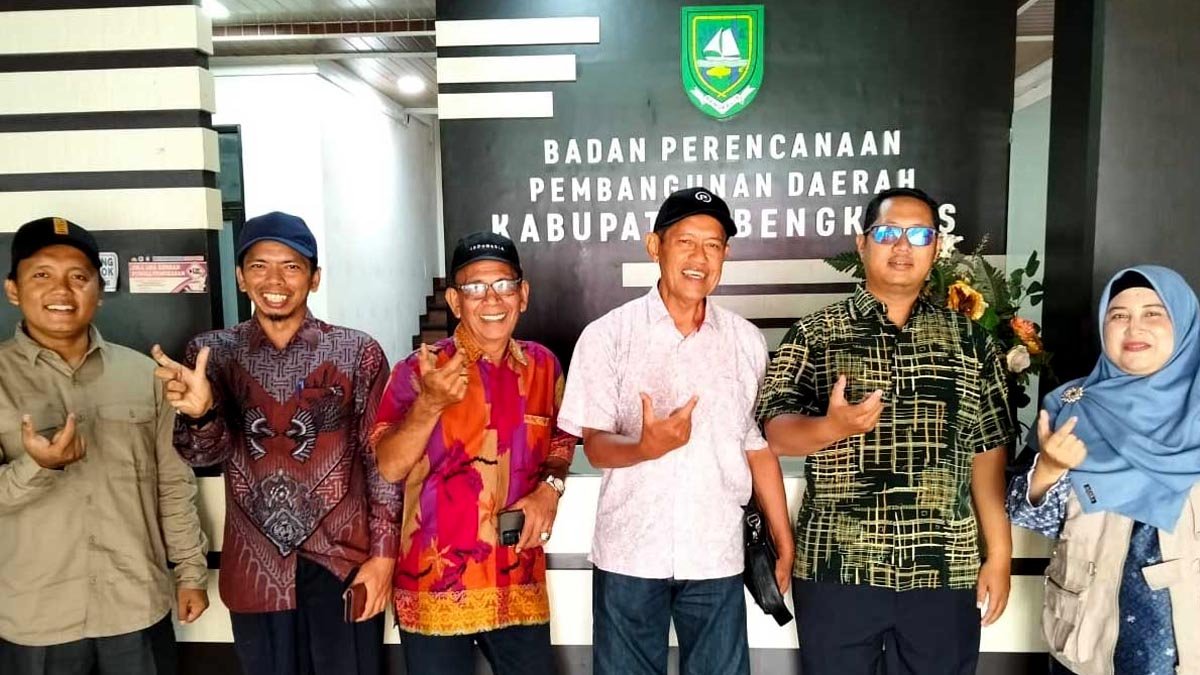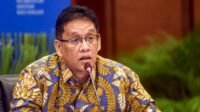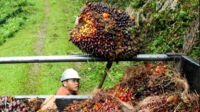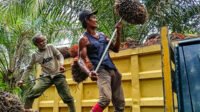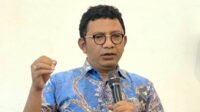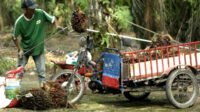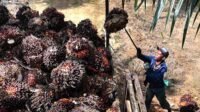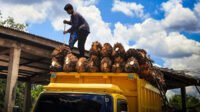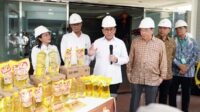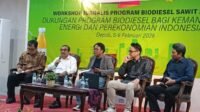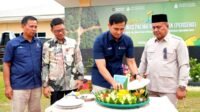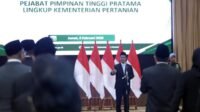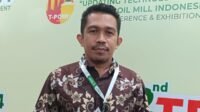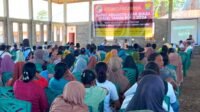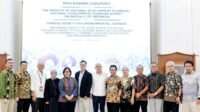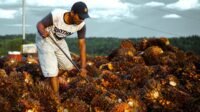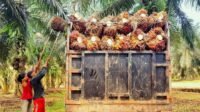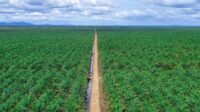PALMOILMAGAZINE, BENGKALIS — Efforts to strengthen the role of independent smallholder palm oil farmers have gained fresh support from academia. Two professors from the Faculty of Social and Political Sciences (FISIP) at Riau University (UNRI), Prof. Zaili Rusli and Prof. Seno Andri, are spearheading a strategic study titled “Adaptive Institutional Models to Enhance Competitiveness and Resilience of Independent Palm Oil Smallholders” in Bengkalis Regency.
The research team also includes FISIP UNRI scholars Dr. Dadang Mashur, Dr. Zulkarnaini, Mimin Sundari Nasution, and young researcher Masrul Ikhsan. Initial activities began with field observations and data collection at the Bengkalis Plantation Office, followed by a Focus Group Discussion (FGD) involving farmers, village officials, cooperative leaders, and agricultural extension workers in Bantan District.
Prof. Zaili stressed that the research is designed to deliver real change for smallholders, whose institutional capacity remains weak. “Independent farmers contribute significantly to national palm oil production, yet their bargaining position is low. Through this research, we aim to develop an adaptive institutional model that strengthens them in terms of structure, collective values, and economic networks,” he said, as quoted by Palmoilmagazine.com from the Bengkalis Regency Government, Sunday (Aug 31, 2025).
Also Read: POPSI to Host 5th IPOSC, Empowering Palm Oil Smallholders to Be More Independent and Competitive
Echoing this view, Prof. Seno Andri added that smallholder challenges extend beyond production to include distribution and market access. “Many farmers are still dependent on middlemen. We want to design institutional models that enable direct access to markets and major buyers, thereby improving their welfare,” he explained.
Following the FGD, the research team also met with the Bengkalis Regional Development Planning Agency (Bappeda) to align preliminary findings with local development plans. Local government support is considered vital to ensure the research outcomes translate into actionable programs rather than remain academic papers.
This initiative highlights the active role of academia in addressing real community challenges. The adaptive institutional model being developed is expected to benefit not only Bengkalis but also serve as a replicable framework for other regions in Riau and across Indonesia. With collaboration among academics, local government, and smallholder communities, Bengkalis could become a model for successful institutional transformation in the palm oil smallholder sector. (P2)

